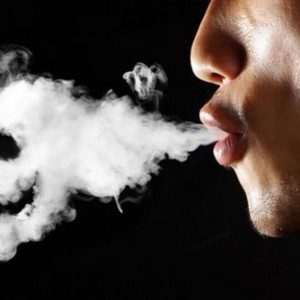Oral Cancer-Am I at Risk?
 The most common places that oral cancer begins invading the body are the tongue and the floor of the mouth. These growths can be serious and are usually a form of squamous cell carcinoma. Often they will spread to the lips and if left untreated the cancer will continue to spread to other body parts. The most common places it will travel to are the lips, floor of mouth, tongue, hard and soft palate, the sinus cavity, cheeks, and throat. As with many cancer the presentation of oral cancer may be the origination or it could also be a result of another cancer metastasizing and spreading from another body part. The most important thing in survival is early diagnosis and detection. If oral cancer is caught early there is a significantly greater chance of beating it. Seeing Philadelphia dentists Dr. Ken Cirka, Dr. Mimi Jeon or Dr. Stephanie Smith can detect early cancer before it spreads. Take advantage of our free new patient special which includes a free oral cancer exam.
The most common places that oral cancer begins invading the body are the tongue and the floor of the mouth. These growths can be serious and are usually a form of squamous cell carcinoma. Often they will spread to the lips and if left untreated the cancer will continue to spread to other body parts. The most common places it will travel to are the lips, floor of mouth, tongue, hard and soft palate, the sinus cavity, cheeks, and throat. As with many cancer the presentation of oral cancer may be the origination or it could also be a result of another cancer metastasizing and spreading from another body part. The most important thing in survival is early diagnosis and detection. If oral cancer is caught early there is a significantly greater chance of beating it. Seeing Philadelphia dentists Dr. Ken Cirka, Dr. Mimi Jeon or Dr. Stephanie Smith can detect early cancer before it spreads. Take advantage of our free new patient special which includes a free oral cancer exam.
Causes of Oral Cancer
Largely, oral cancer is linked to tobacco use. This comes in many different forms including smokeless tobacco, dipping snuff, chewing tobacco, cigars, cigarettes, and more. The longer one exposes themselves to the tobacco the higher the risk of developing the cancer. By far tobacco is one of the biggest known culprits in the development of the pre-cancerous lesions. Tobacco has over two dozen known carcinogens (cancer causing agents) in it and sometimes 4,000 chemicals present.
Another suspected link to oral cancer is the overuse of alcohol. Studies have shown the alcohol can irritate the lining of the mouth or gums.
The risk becomes higher when using both tobacco and alcohol. It is apparent that when alcohol and tobacco are used in combination there is a synergistic effect that will substantially increase the risk of oral cancer.
On the other hand, long periods of exposure to the sun could also increase the risk of lip cancer. Sunlight, through radiation, helps to produce cancer along the vermilion border of the lip.
 Some have suggested that diet will play a significant role however the most current research from accumulated evidence shows that the use of tobacco and alcohol far outweigh the link of a deficient diet causing risks to increase.
Some have suggested that diet will play a significant role however the most current research from accumulated evidence shows that the use of tobacco and alcohol far outweigh the link of a deficient diet causing risks to increase.
Finally, the Human Papilloma Viruses is a serious causal link to oral cancer. These viruses will cause cervical cancer and also have been linked to oropharynx cancer. It is a virus becoming more and more common as it is passed through social contact.
Signs of Oral Cancer
Oral cancer presents itself in many different ways. Below are some of the most common way that they appear:
– Red and white patches in the mouth or lips
– Lumps or swelling on the gums, lips, cheek, and at the back of the throat
– Non-healing of a sore in the mouth or lips
– Unexplained weight loss
– Difficulty in speaking, chewing, or swallowing,
– Swollen lymph nodes in the areas of the neck
– Difficulty when moving the jaw or tongue
– Bleeding in the mouth
– Numbness or loss of pain in the areas of the face, mouth, or neck
– Losing of teeth
– A change in the fitness of dentures
– Pain in the ear
Oral Cancer Treatment
The treatment, just like other forms of cancer, is through a multidisciplinary approach that is comprised of dentists, oncologists, nutritionists, surgeons, and specialists in rehabilitation. If there is a small growth of a tumor many times this can be removed with a surgical procedure. If the cancer is more extensive sometimes part of the tongue or jaw bone will need removed. The correct treatment is developed on a case by case basis and very much varies per patient.
How Do I Get Checked?
It is extremely important to keep up with your regular dental check-ups and cleanings to prevent gum disease. Philadelphia dentists Dr. Cirka, Dr. Jeon or Dr. Smith will evaluate the tissue for changes. As previously stated, early detection is key and can save your life. If you are not sure if you received your oral cancer screening at your check-up, contact us to perform one for you.


